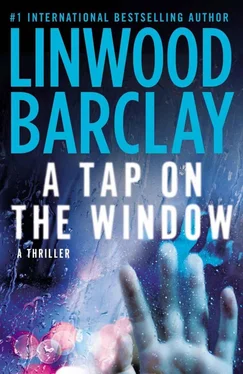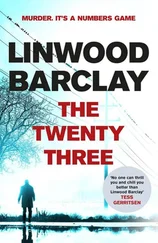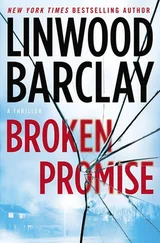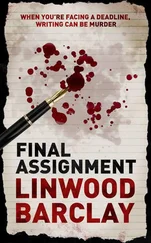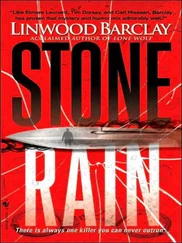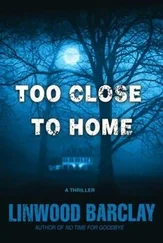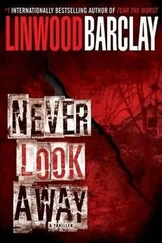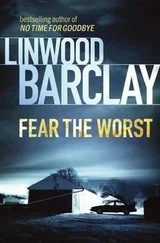“Mom...” Richard came back down the stairs halfway.
“Richard, listen to me,” she said. “If you call the ambulance, they’re going to call the police, too.”
“I’m the police,” Richard said.
“I know. But others will come. And when Harry wakes up, and tells them what you did...”
“I... I didn’t mean to do it. He just made me so angry. I thought he was going to hit you.”
“I know, love, I know. I totally understand. But the police, they won’t. They won’t understand. You’re just starting out. It wouldn’t be right, it wouldn’t be fair for them to hold this against you.”
“I... I don’t know...”
“Get the bed set up. Set it up right here. I’ll straighten him out.”
Richard brought in the rollaway, the rusty wheels squeaking in protest. He opened it and flattened it, patted the mattress to smooth it out.
“Help me lift him,” Phyllis said.
Together, they got him onto the bed. “He’s still breathing,” she said. “He seems to be breathing just fine.”
“I couldn’t stand what he was doing,” Richard said. “He just wouldn’t stop. He couldn’t let it go, he—”
“It’s okay. Everything’s going to be okay. We’ll look after him. He’ll probably be fine in a few hours. He’ll have a bad headache is all. You wait and see. It doesn’t make any sense to make a bigger deal out of this than it really is.”
“If that’s what you think, Mom,” Richard said. She always seemed to know the right thing to do.
But was this right? It had seemed so at the time. But Harry was not fine in a few hours. He didn’t regain consciousness for two days. When he did, he wasn’t the same. He was simpler, somehow.
When Richard and Phyllis tried to coax him out of bed, they discovered he could not move his legs.
“We should call a doctor,” Richard said. “He probably needs an X-ray or something.”
“We’ll give it a few more days,” Phyllis insisted. “Maybe — maybe whatever broke that keeps his legs from working will fix itself.”
Neither one of them really believed that, but they were willing to give it a go.
At Patchett’s, people asked where Harry was.
“He’s got that nasty flu bug that’s been going around,” Phyllis told them. “Last thing I want is him coming in here and sneezing on the chicken wings.”
After a week had gone by, Phyllis and Richard knew they had a real problem on their hands.
They’d waited too long to call for help. How were they going to explain their actions? Letting a man fall down a full flight of stairs and not calling for help? It was a bit late to start claiming self-defense. If what Richard had done had been to save his mother’s life, they could have called the police that night. After all, as a spanking-new police officer, Richard would have a pretty good idea what constituted self-defense.
But they didn’t.
And while Harry Pearce was a little groggier than he used to be, every time Richard descended those stairs to see how his father was coming along, the man would raise one arm weakly, point at him, and say, “You. You son of a bitch.”
Meaning that pretty damn literally.
Getting him medical attention now posed a considerable risk to Phyllis and her son, but particularly to him.
And at work, people continued to ask, “How’s Harry? Where the hell is he? When’s he coming back?”
“What are we going to do?” Richard asked one night as the two of them sat at the kitchen table, listening to Harry snoring downstairs.
“I don’t know,” his mother said.
“People are going to keep asking and asking where Dad is,” he said.
“We have to stop them from asking,” she said. “This needs to end, somehow.”
Richard leaned back in his chair. “What are you saying? You’re not thinking we should—”
“No, no, of course not. But everyone needs to think something has happened, something permanent, so they won’t be asking where he is anymore.”
“Like, maybe he went to see his cousin,” Richard said. “In Calgary.”
Phyllis shook her head. “People would keep asking when he was coming back. No, we need to tell a story that will stop people from asking questions once and for all.” Her mouth tightened. “I went to the library today. I found out something interesting. I found that over the years, quite a few people who’ve fallen into the river accidentally and gone over the falls — some of them were never found.”
“Wait,” Richard said. “I thought you just said you weren’t saying we’d do anything like that. We’re not going to send him over the falls. We can’t... I mean, he’s my father. Okay, not my real father, but that’s what he’s been to me for a hell of a long time.”
She reached out and held his hand. “I know that. But I was thinking, if we could make people think he went over the falls, then we can just keep looking after him. Right here.”
“For how long?”
“As long as we have to.”
“But he might... what if he actually gets better? Well enough to, you know, walk up those stairs and out the door?”
“Richard, he’s not going to get better. His spine is broken. Something’s happened to his head, too. He’s gone a bit simple. He’s not even obsessed with things the way he used to be, other than still writing down what he eats in that stupid book. I’m telling you, he’s not going to get up and walk out of the house one day and tell everybody what happened to him.”
They came up with the boat idea. That Harry got drunk one night, decided to take his boat out into the river. They’d leave his car and trailer at the river’s edge. Leave the oars in the car so later, when the boat, and its empty tank of gas, was found downstream from the falls, the authorities would be able to put it together. They’d search for his body, maybe for a few days, before they gave up.
And that’s what they did.
There was an article in the paper, an item on each of the local stations. CNN even picked up the story. There was a funeral, even though there was no corpse to bury. Phyllis wept. Richard held her and consoled her.
A lot of attention for ten days or so.
And then everyone moved on. No more questions about what was up with Harry.
Richard got his own apartment soon after. He couldn’t bear to be in the house twenty-four/seven. But he returned nearly every day at some point — usually before or after his shift — to check on his stepfather. Brought him meals, helped with his toileting needs, cleaned up after him, found books and magazines for him to read, but mostly magazines, since Harry found it hard to concentrate on books.
Everything seemed to be going along okay.
Until one day Phyllis came home late one night after closing down Patchett’s, and there, ten feet from the door, dragging himself across the living room carpet, was Harry.
Nearly gave her a heart attack.
Another twenty minutes and he’d have been on the front porch. Another ten after that, and he’d have crawled down to the sidewalk, where anyone might have seen him.
From that day forward, a lock went on the door of his room in the basement.
You had to do what you had to do.
“What happens,” Richard asked once, “when he really does... you know, pass away?”
Читать дальше
